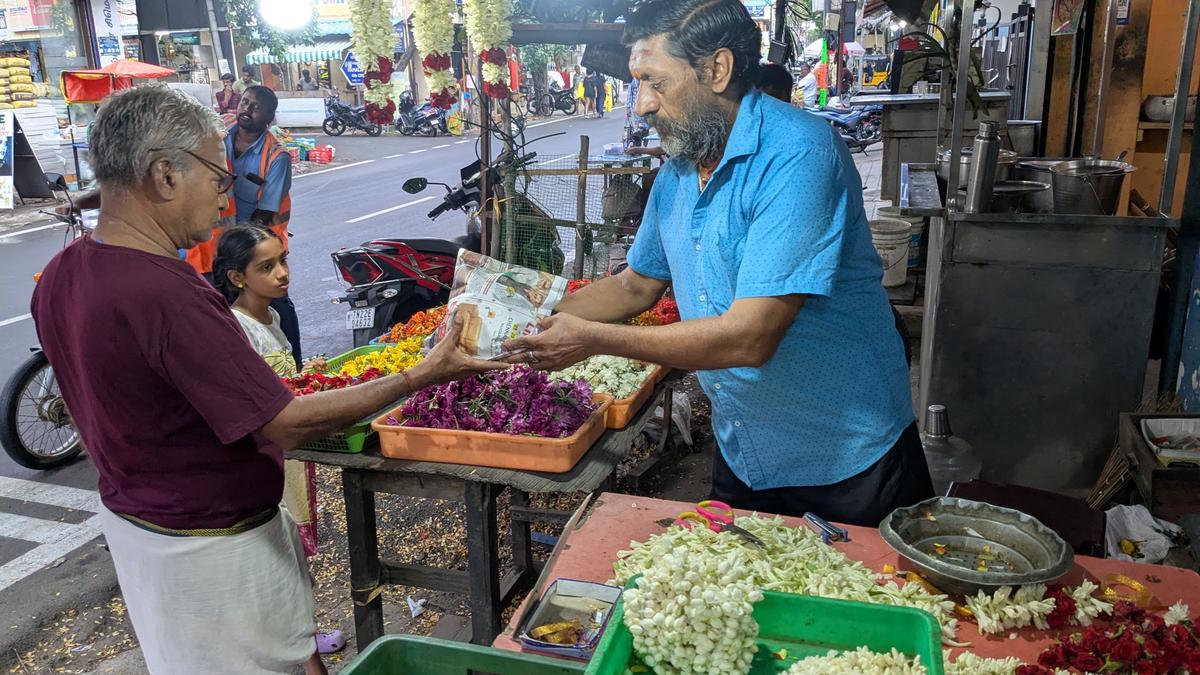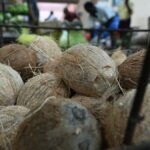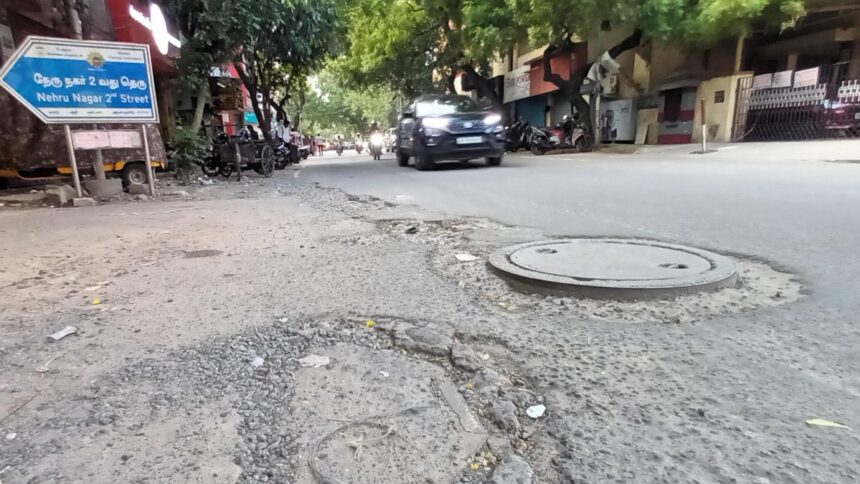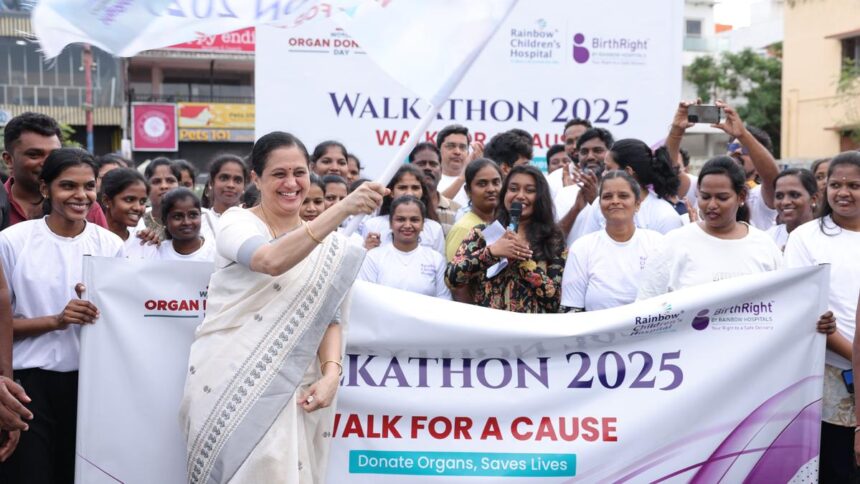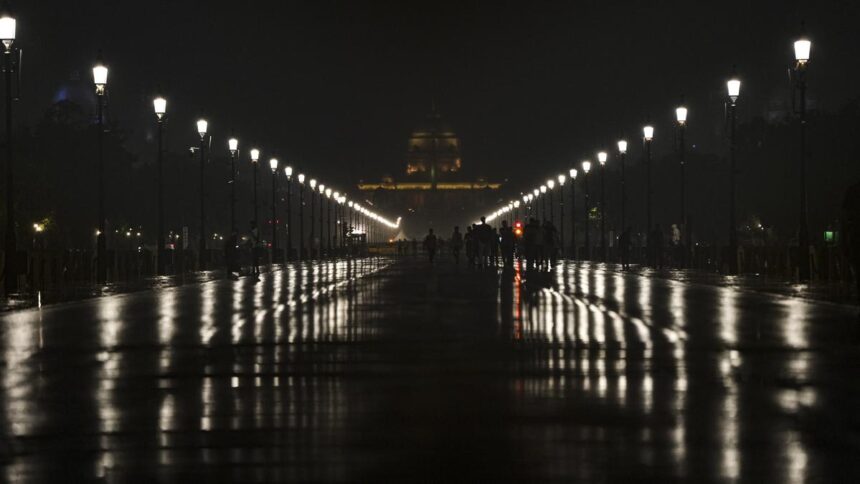In a world where every personal plan and public policy clicked neatly into its intended place, Plastic Free July would be a superfluity. But with laws to eliminate single-use plastics having the biting force of the Etruscan pygmy shrew with its almost-invisible teeth, this awareness month is a necessity in our world. It challenges people to avoid banned plastics and minimise the use of legal and unavoidable plastics, to start with, for a month. These three individuals did not need the prodding of a Plastic Free July to free themselves from the entanglements of single-use plastics. They simply emerged as tiny pockets of resistance in a vast landscape of capitulation. Here are their stories.
Flowers wrapped in a cause
In Adambakkam, Jagadeesh plies his trade near Sri Subramaniya Swamy Temple on Brindavan Nagar Main Road. From a shop that can be slipped into a vest-pocket, he sells flowers, making a quiet but firm statement — no plastic covers, only paper wrapping and paper bags. For the past 2.5 years, the 56-year-old has wrapped every garland and bunch of flowers in newspapers, refusing to use plastic covers. He stands his ground when a customer would wince at the sight of flowers being wrapped in paper.

Besides replacing many plastic items with eco-friendly alternatives, Radhika Premkumar carefully recycles the plastic bottles that sneak into her house.
“I will give only paper. If you do not like it, no problem, you can leave” — that is Jagadeesh’s response to any complaint from a customer.
He developed a distaste for plastic covers during the monsoon three years ago. Following a cloudburst, plastic covers had clogged the drains, resulting in a flooded street. Jagadeesh stepped out and cleared the plastic waste himself. “People laughed at me, but I knew I had to do something,” he says.
Since then, plastic covers have been an anathema: he made them unwelcome where he could without anybody’s permission — that is, in his shop. Unlike many others who choose to use old newspapers, Jagadeesh buys 40–50 fresh papers every week from a nearby shop to make clean paper bags. “Flowers are meant for puja. They should be clean. How can I give something sacred in a dirty paper?” he asks.
For customers buying a bunch of garlands, he neatly packs them in white gunny bags.
Jagadeesh’s daily sales is in the range of ₹900–1000, with flowers priced modestly between ₹20–30. He does not seem to attach an undue value to profits. Other things matter just as much, if not more. “One out of every 100 customers would get irritated, but most people appreciate it. Some bring their own jute bags now, and I am happy about that,” he says.
Jagadeesh also gently explains to customers the harm plastic causes. He notes: “It is not just about business. We all have to take responsibility at some point in our lives.”
‘No plastic zone’ in a residential pocket
Radhika Premkumar from Khivraj Mansarovar Second Street in Chromepet lets her life be steered by a sustainability philosophy. Trained in commerce through collegiate education, Radhika once had a corporate career. And the nine-to-five rigour allowed little time for mindfulness to the minutiae of everyday living. In December 2015, during the Chennai floods, she found herself facing a fork in the road, pointing her in a new direction. Struck by illness and unable to reach a doctor as the floods had disrupted life, she realised that healing should be built into daily living, various aspects of it being defined by health-promoting choices. Besides turning to natural remedies, including acupressure, Radhika rung in changes that turned her hearth upside down, in a positive way. Her family being on the same page, she could implement these changes without any resistance. In 2016, she switched to biogas cooking. “By 2018, I began making bio enzymes,” she says. Passion led her to wear a new professional identity as seller of bio-enzymes. Post-pandemic, she co-founded Arani Biotech with Kannabiran and Kumaran; the company manufactures bio enzymes.
Of course, the plastic presence in her home did not escape Radhika’s introspective look. Wherever possible, she has replaced plastic items with eco-friendly alternatives and single-use plastics do not have a toehold in her household.
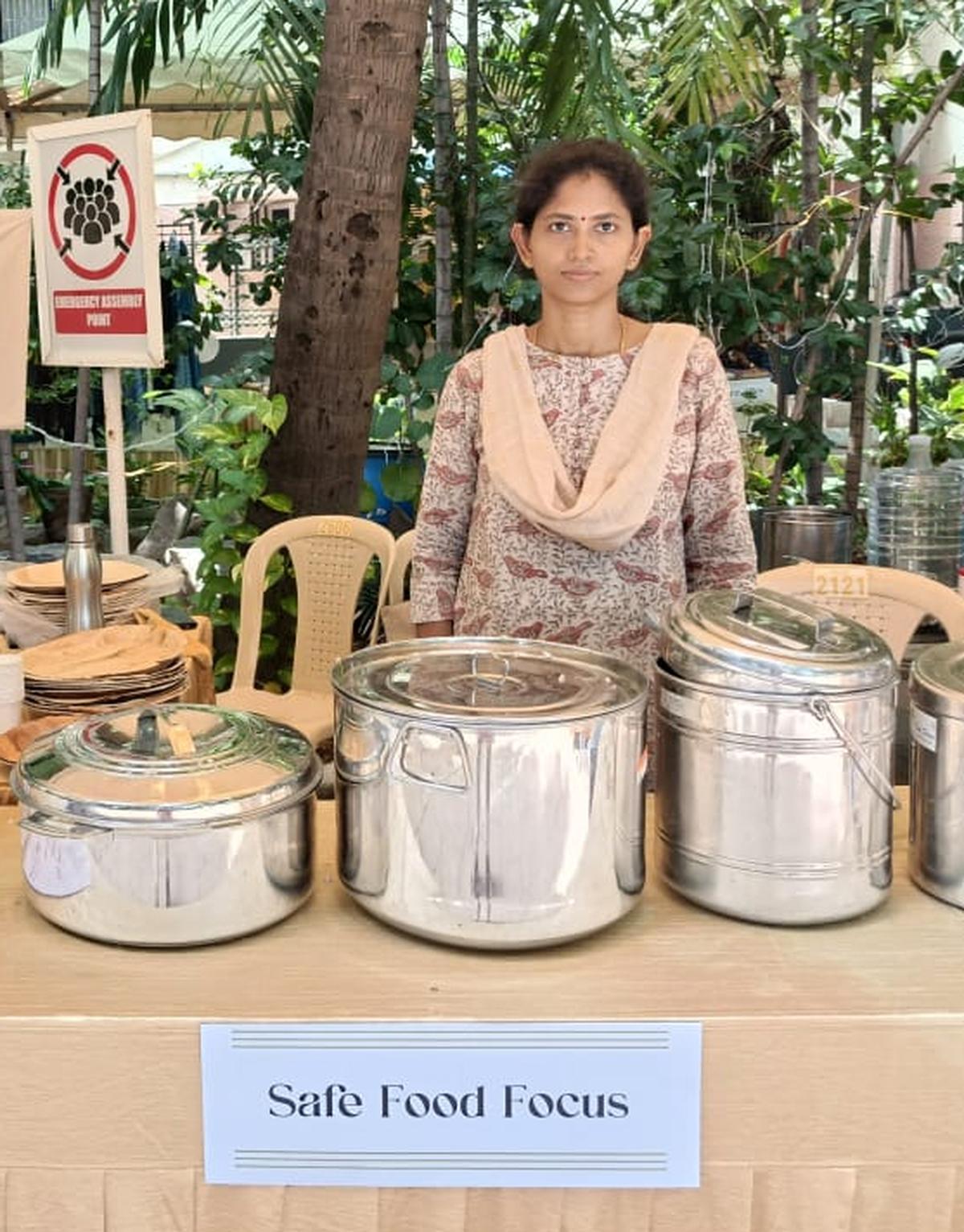
Healthy traditional food in planet-friendly containers and packaging — that is the dictum Sasikala swears by.
Here are some of the replacements. Bamboo brushes instead of plastic brushes. Steel straws instead of plastic straws. Vetti ver body brush instead of plastic loofah. Steel water bottles instead of plastic water bottles. Provisions are carried in cloth bags or steel vessels, and she never leaves home without her trusty water bottle. “Plastic sneaks in sometimes, such as through online food deliveries, but we can always make sure it does not pile up on the planet,” she says. She ensures plastic items that come home uninvited, but unavoidably (examples being plastic juice bottles and milk covers) are dispatched to the recycler or the local scrap dealer. She avoids polyester and steers clear of products with harmful chemicals.
Medical waste such as band-aids, adult diapers and needles is packed carefully before disposal. Nothing is tossed out mindlessly.
Through awareness sessions in schools via the Rotary Club, Radhika plants ideas of change in young minds. “My neighbours tell me they think of me when they carry water bottles or switch to cloth pads. That feels like a small win,” she smiles.
Her advice is simple: conscious buying, gradual change, and less waste. She says: “We have to read labels, know the ingredients to know what we re buying. Every habit takes time, but the key is to start.”
Catering for the planet’s needs
In a world hooked on fast food and faster packaging, Sasikala from Velachery “slows” things down on both fronts. Her homegrown venture, Safe Food Focus offers traditional dishes, neatly packed in butter sheets, cotton boxes or even banana leaves — never plastic. For courier orders, she uses ziplock paper covers. When she cooks for orphanages or parties, she delivers the food in steel vessels. Transportation of steel containers demands the hire of a bigger vehicle adding to the logistics, but Sasikala has learnt to take this challenge in her stride.
In her cooking classes and through awareness drives, Sasikala urges people to carry their own plates, spoons, and bottles while travelling.
Sasikala prides herself on ensuring personal and planet health. Her first big order in 2023, feeding 100 children, sowed the seeds of Nallaram, an initiative to provide nutritious kanji mixes to children with anaemia. Two years later, the impact is visible by the smiles on those children’s faces, notes Sasikala.
Like a dress with two colour combinations that can be worn inside out, her kanji mixes — blends of two or three traditional rice varieties — can be turned into kichadi, upma, or even payasam.
Published – July 06, 2025 06:03 am IST








